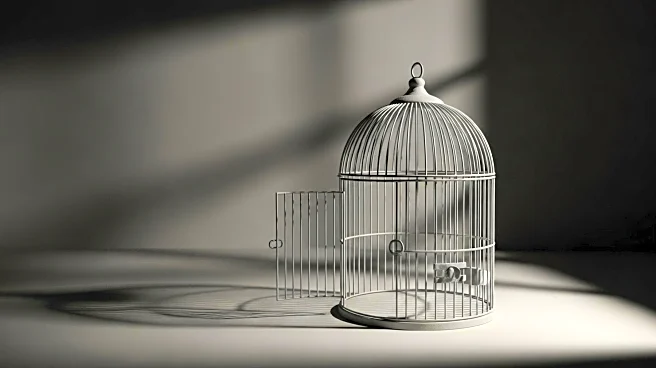What is the story about?
What's Happening?
Zhang Zhan, a Chinese journalist who was previously imprisoned for documenting the early stages of the COVID-19 outbreak, has been sentenced to an additional four years in prison. Zhang was initially arrested in December 2020 on charges of 'picking quarrels and provoking trouble' after she shared firsthand accounts from Wuhan, the epicenter of the pandemic. Her reporting included videos from hospitals and streets, which contradicted the official narrative. Zhang's latest sentencing follows her continued reporting on human rights abuses in China. Reporters Without Borders (RSF) and other advocacy groups have condemned her imprisonment, calling for international pressure on Beijing for her release.
Why It's Important?
Zhang Zhan's case highlights ongoing concerns about press freedom and human rights in China. Her imprisonment underscores the risks faced by journalists who challenge official narratives. The situation has drawn international attention, with advocacy groups urging diplomatic intervention. The broader implications affect global perceptions of China's handling of dissent and transparency, particularly in the context of public health crises. Zhang's continued detention may deter other journalists from reporting on sensitive issues, impacting the flow of information both within China and internationally.
What's Next?
International advocacy groups are expected to increase pressure on China for Zhang's release. The case may influence diplomatic relations, as countries weigh human rights concerns against economic and political interests with China. The Chinese government's response to international criticism could affect its global standing and future interactions with foreign media. Additionally, Zhang's situation may prompt discussions on the protection of journalists and the importance of press freedom in authoritarian regimes.
Beyond the Headlines
Zhang Zhan's imprisonment raises ethical questions about the role of journalism in authoritarian states and the balance between state control and individual freedoms. Her case may lead to increased scrutiny of China's legal system and its use of vague charges to suppress dissent. Long-term, this could influence global media policies and the strategies of international organizations advocating for press freedom.
















